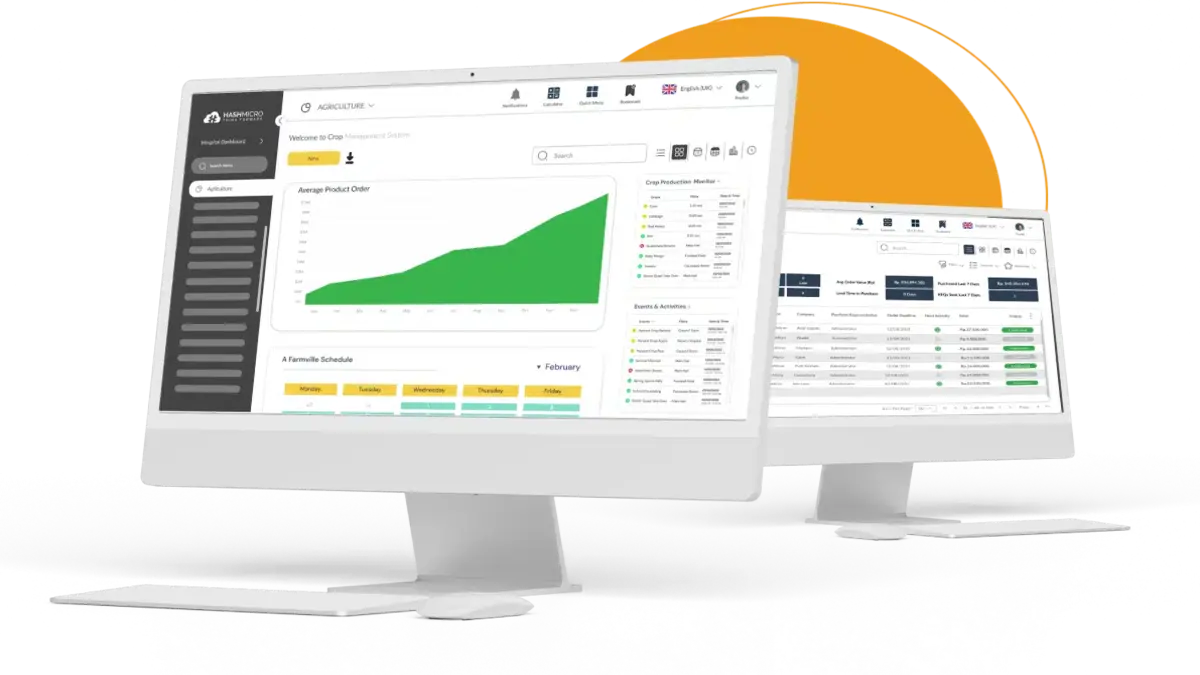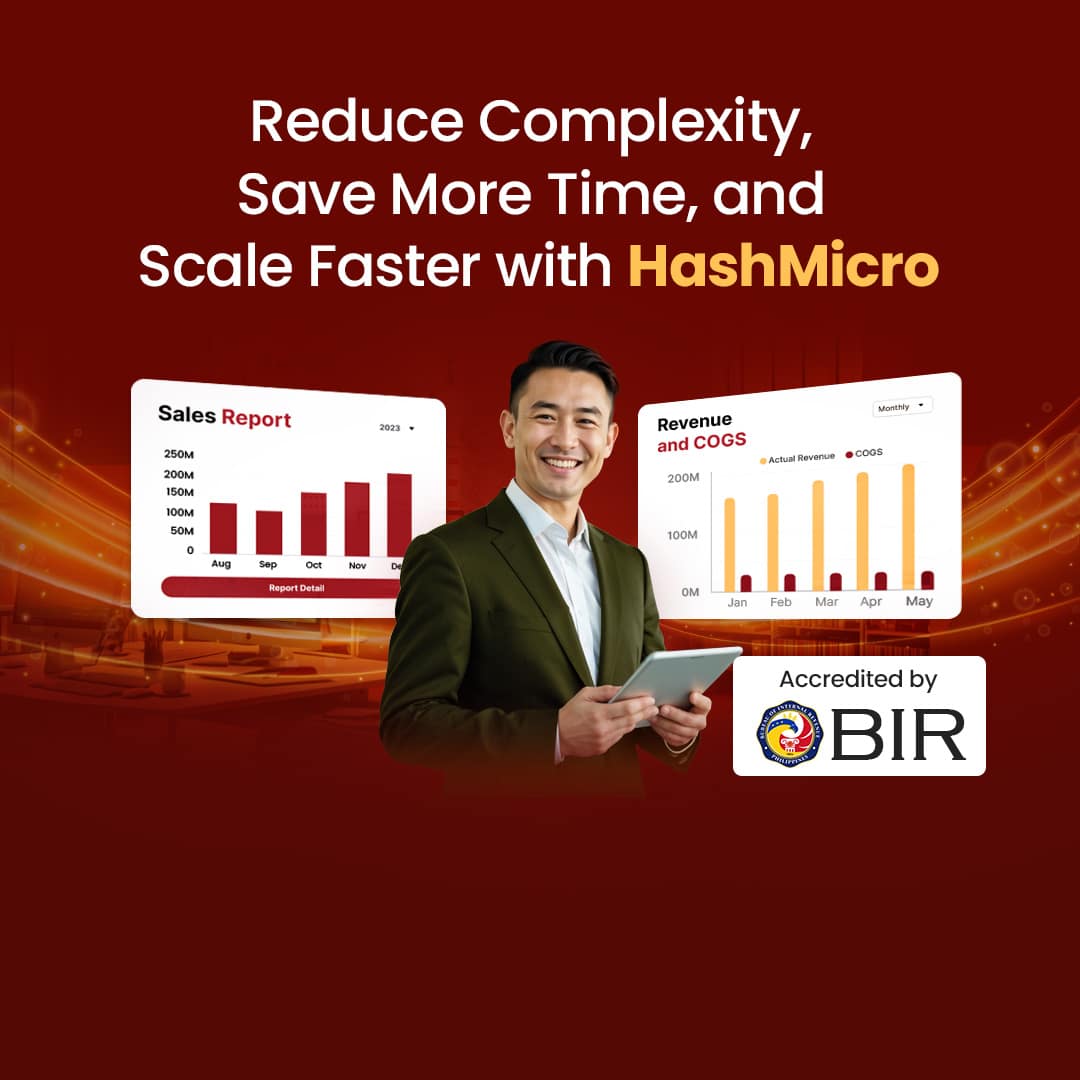The Philippine agriculture industry is crucial for both economic growth and employment. As of the first quarter of 2023, the Agriculture, Forestry, and Fishing (AFF) sector accounted for 9.1% of the country’s GDP. Approximately a quarter of employed Filipinos work in the agricultural sector.
Therefore, using agriculture software is vital for the Philippines’ sector. It boosts productivity, streamlines processes, and ensures informed decisions. Filipino farmers can optimize resource allocation and contribute to sustainability by adopting these tools.
The range of options when choosing agriculture software for companies in the Philippines can be both a blessing and a challenge for companies’ development. With so many choices, it’s vital to find the right fit for your needs. Selecting the wrong software can lead to wasted time, resources, and operational disturbances if you don’t clearly understand what you require.
To help you make a wise choice, we’ve listed the best agriculture software available to help you find the perfect fit for your farm.
Table of Contents

Key Takeaways
|
4 Benefits of Agriculture Software for Your Operations
Agriculture management software is essential for farms and agricultural businesses of all sizes. It provides many advantages that greatly improve operations. Choosing agriculture management software isn’t just smart; staying competitive in the Philippine agricultural sector is necessary.
Here are the benefits of using agriculture management software:
1. Enhanced cost tracking
Agriculture software can significantly boost companies’ development and profitability by offering advanced cost-tracking features. These features allow farmers to monitor long-term expenses for each field or block. This complete insight enables informed decision-making, optimizes resource allocation, and ultimately enhances overall profitability.
2. Streamlined crop management
Farm management software helps streamline crop management. It enhances plant control with complete analytics, covering everything from land management to harvesting.
Manual management becomes challenging when the field area becomes larger, and there are more crops; an agriculture management system helps manage the area effectively.
3. Centralized data
The data helps farmers make better decisions, whether about weather challenges or improving crop yields. It provides features like weather forecasts, pest alerts, plant health monitoring, and recommendations for fertilizing and spraying at the right times.
4. Minimizes waste
The agriculture management system revolutionizes farming practices by meticulously tracking resource usage, forecasting crop needs, and automating the supply chain. This transformative technology minimizes waste, optimizes inputs, and streamlines operations, fostering sustainability and profitability in the agricultural sector.
Top 10 Agriculture Software for Philippine Agribusinesses
Choosing the right agriculture software for your business’s development can be overwhelming with the many options available. If you are uncertain, fear not—we are here to assist you with a list of the best agriculture software options in the Philippines.
We’ve carefully selected the 10 best recommendations based on factors like cost-effectiveness and software usability. So, let’s dive in and find out which agriculture software best suits your needs.
1. HashMicro Agriculture Software
HashMicro is a premier provider of agriculture management software, transforming the operations of farmers and agribusinesses across the Philippines. It is carefully designed to modernize and simplify agribusiness operations.
The software is a comprehensive and personalized solution tailored to meet the unique needs of agriculture business owners. Trusted by numerous large agricultural businesses across Southeast Asia, it covers every step of farming, from land management and warehouse management to product distribution.
HashMicro provides farmers with all the details they need about their infrastructure’s value and condition, helping them make informed decisions about land preparation and processing crops. Automated scheduling ensures regular maintenance, enhancing performance and lifespan.
Moreover, HashMicro’s agriculture management software can integrate with various modules, such as accounting, inventory, and procurement, for better and smoother operations. With its comprehensive features, ISO certification, and dedicated customer support, HashMicro is ready to be your trusted long-term partner in the agriculture industry.
Here are the key features of HashMicro farming software:
- Land preparation management: Streamline the process of processing land and crops by selecting the appropriate infrastructure for your business needs.
- Automated production scheduling: Schedule regular and automatic infrastructure maintenance to support agricultural production success.
- Agribusiness activity management: Easily optimize infrastructure maintenance for agricultural production.
- Business management automation: Automate your agricultural business operations, from product distribution to internal transfers between locations.
- Plant care scheduling: Simplify plant care management and worker duties in a single system.
- Planting reminder: Automatically send the notification to make the fertilizer planting process run according to the specified time.
- Workforce monitoring: Allocate human resources efficiently in each location through reporting, time tracking, and statistical tools.
- Real-time data input: Field workers can easily update real-time progress and data on a single cloud server.
| Pros | Cons |
|
|
Estimate your agriculture investment easily with our pricing calculator. Click on the banner below to get a custom quote designed for your business today.
2. FarmERP
FarmERP is agriculture software for companies that serve agribusinesses. The platform offers a customizable solution for managing resources, strategies, and data across various aspects of agribusiness. With a commitment to sustainability, FarmERP aims to help the industry drive holistic growth.
Features:
- Planning
- Reporting
- Integration with IoT
- Mobile app
- Procurement & Packing
| Pros | Cons |
|
|
3. Farmbrite Farm Management Software
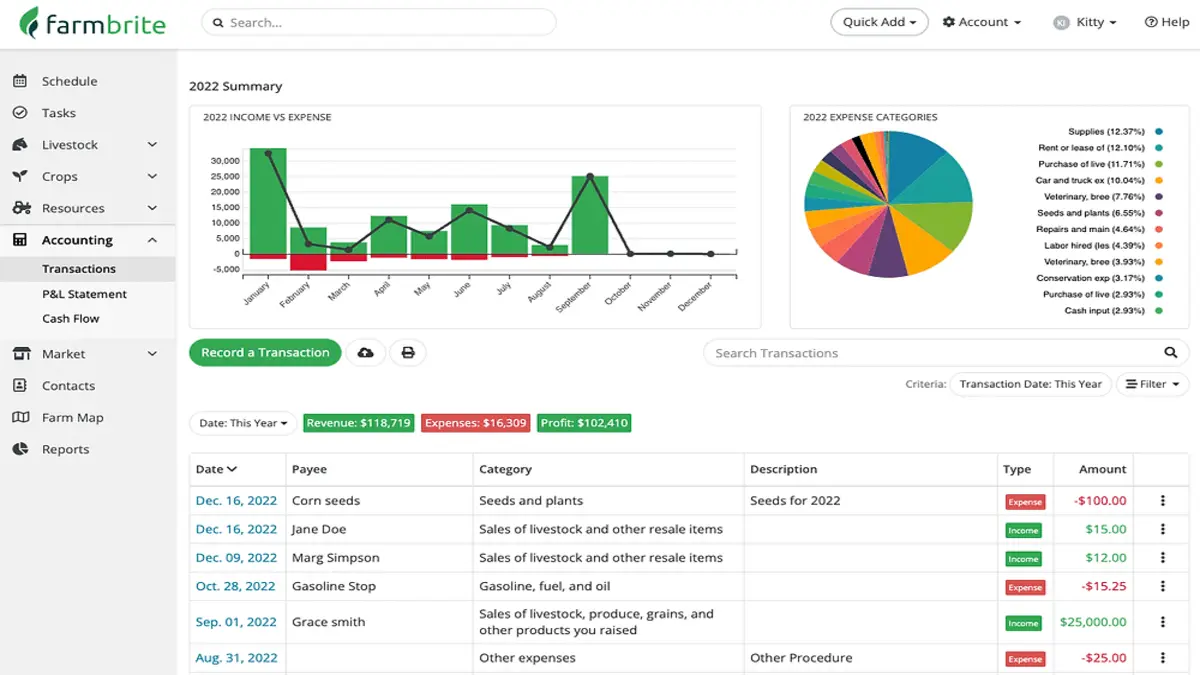
Farmbrite is an all-in-one farm management software designed to help modern farmers and ranchers streamline their operations. It integrates various features for improved efficiency and brings together tasks, records, sales, and data, allowing users to focus on farming while the software handles the rest.
Features:
- Crop & livestock management
- Task management
- Inventory management
- Financial tracking
| Pros | Cons |
|
|
4. Trimble Agriculture
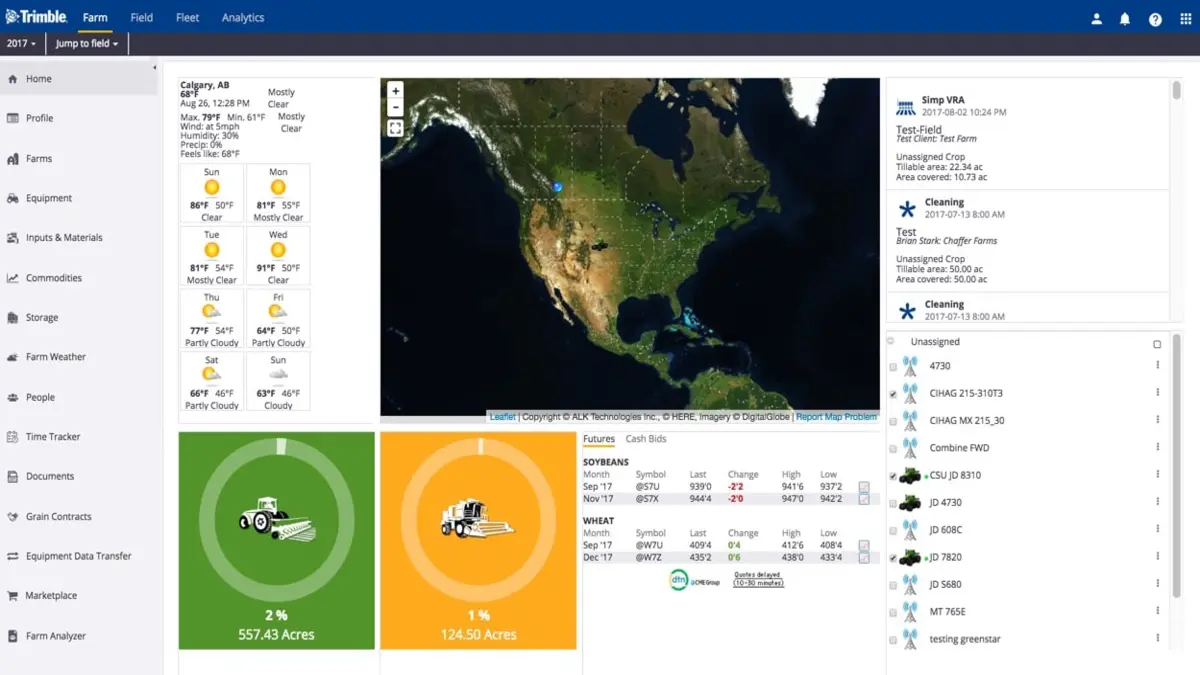
Trimble Agriculture offers agriculture software for Philippine agribusinesses. Their tools connect all aspects of a farmer’s operation, enabling quick decisions based on real-time data. With simplified workflows and innovative technology such as Geographic Information System (GIS), Trimble helps farmers boost productivity, increase profits, and promote sustainability.
Features:
- Farm management
- Task documentation
- Work order management
- Yield monitoring
| Pros | Cons |
|
|
5. Farming Software Fasttrack Solutions
Fasttrack Solutions provides agriculture software solutions that empower Philippine businesses in the agricultural sector. Fasttrack’s expertise helps firms track and anticipate these variables. Their real-time and historical data and scenario visualization enable informed day-to-day and strategic decisions.
Features:
- Business management
- Real-time weather data
- Inventory management
- Labor management
| Pros | Cons |
|
|
6. Agriculture Software EasyFarm
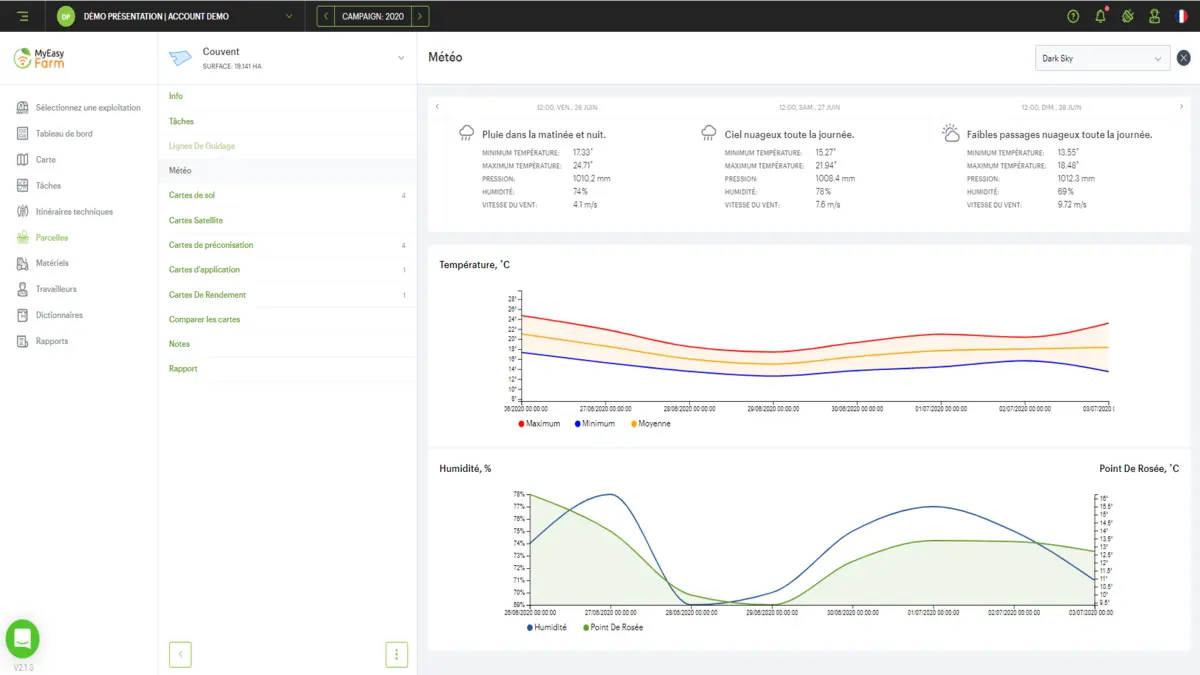
EasyFarm is farm management software designed to optimize crop planning, livestock management, and financial tracking. Through detailed data analysis, the software aims to enhance efficiency and support sustainable farming practices.
Features:
- Chart of account
- Cost centers
- Bank account integration
- Inventory tracking
| Pros | Cons |
|
|
7. CropTracker Agriculture Management Software
![]()
Croptracker is agriculture software for fruit and vegetable farmers in the Philippines. Developed by Dragonfly IT, Croptracker prioritizes features that enhance productivity, improve traceability, and provide accessibility. With Croptracker, farmers can create customized schedules, track work crew activities, and generate analytics and reports.
Features:
- Labor tracking
- Storage records
- Quality control
- Harvest packing and recording
| Pros | Cons |
|
|
8. Agriculture Software Granular
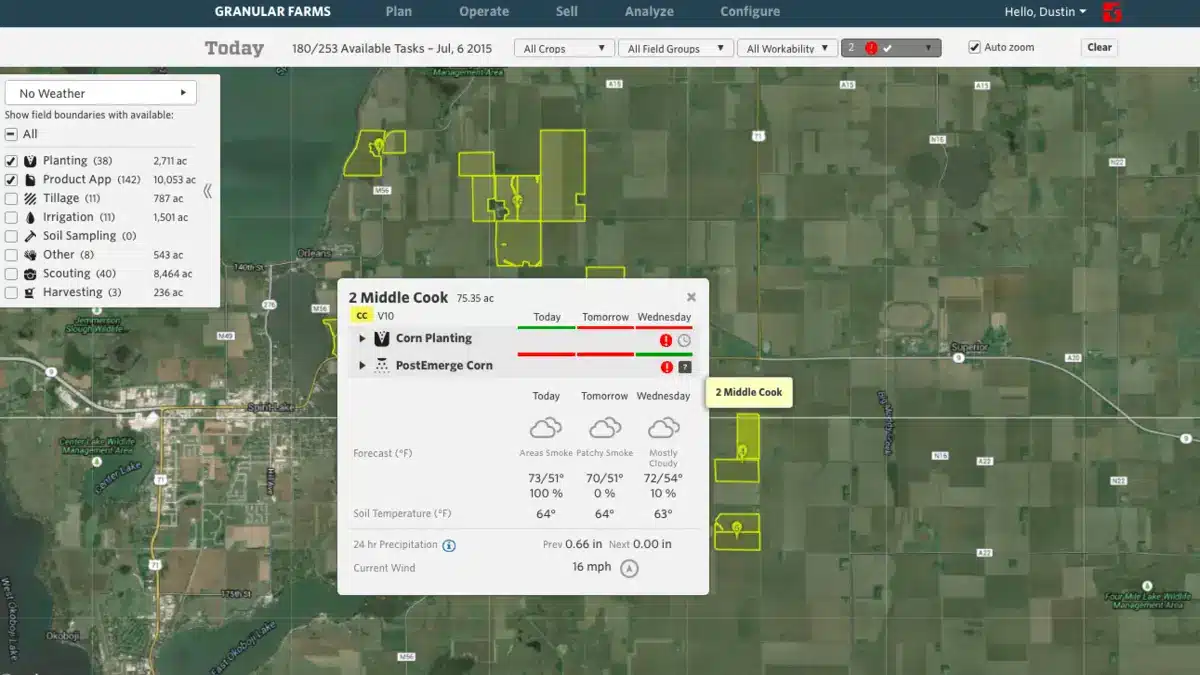
Granular is a farm management software designed to help farmers optimize their operations. It serves as both a crop management and farm accounting tool. Granular’s primary objective is to help farms increase their yield through data-driven crop models.
Features:
- Inventory management
- Profit tracking
- Integration with equipments
- Information management
| Pros | Cons |
|
|
9. Conservis
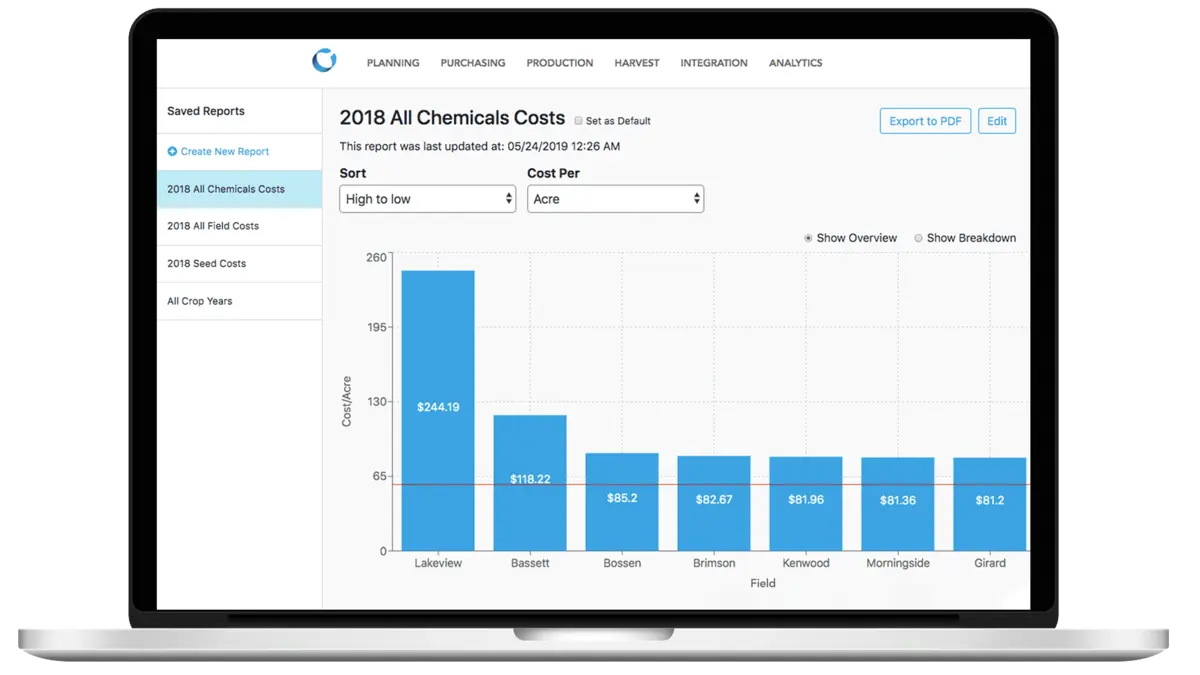
Conservis is one of the agriculture software in the Philippines that offers the digital tools needed for agribusiness success. Its web and mobile platforms deliver comprehensive planning tools, real-time data capture, and insightful analytics to support better decision-making and efficient reporting.
Features:
- Inventory and grain management
- Machine integration
- Reporting and analytics
- Financial tracking
| Pros | Cons |
|
|
10. Agriculture Software TraceX
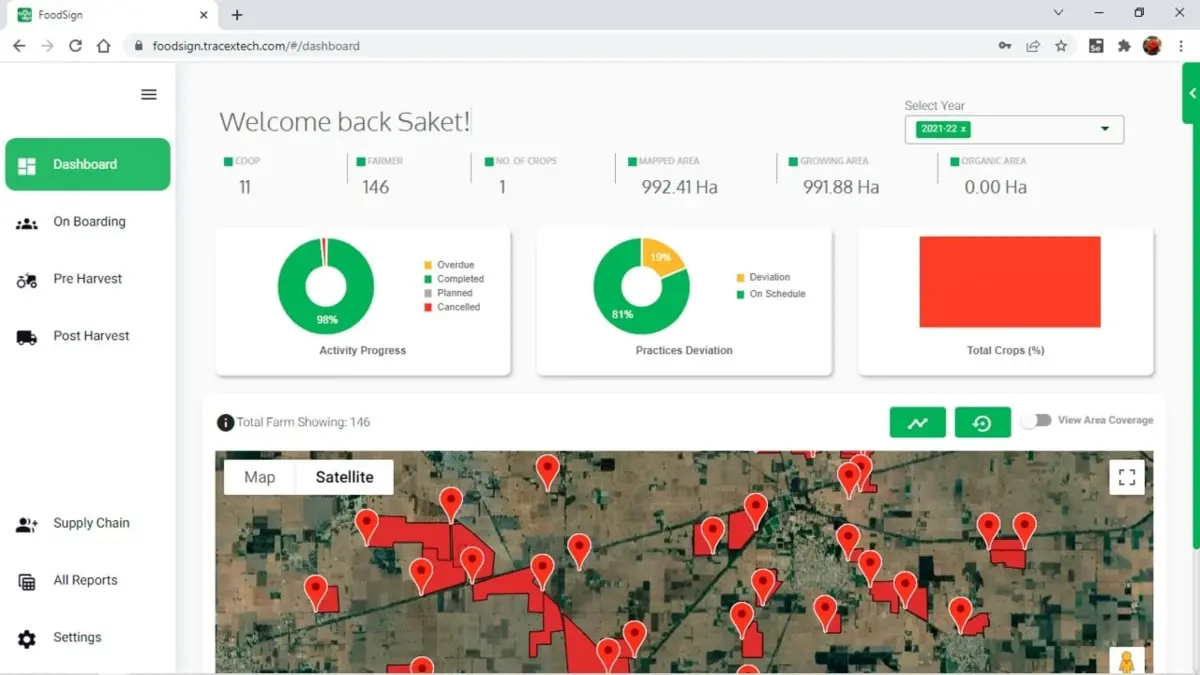
TraceX is a modern agriculture software in the Philippines. It links various players in the food and agri supply chain, enabling them to safely share trustworthy data. By promoting trust, accountability, traceability, and transparency, TraceX transforms how organizations and farmers engage in agriculture.
Features:
- Supply chain integration
- Weather forecasting
- Risk mitigation
- Crop monitoring and management
- Mobile application
| Pros | Cons |
|
|
How to Choose the Right Agriculture Software for Your Business

Exploring various options for agriculture management software can feel overwhelming, particularly for businesses focused on agriculture operations. While these systems aim to streamline agricultural management, each offers distinct features.
Here are some tips to assist you in selecting the appropriate software for your agriculture management requirements:
- Research Available Solutions: Explore agriculture software solutions for the Philippine context. Consider ease of use, functionality, and compatibility. Read user reviews for insights.
- Customization and Scalability: Use flexible software that adapts as your farm grows. Prioritize customizable features to align with your processes.
- Integration and Compatibility: Ensure seamless integration with existing systems and mobile compatibility for real-time data access.
- Data Security and Privacy: Choose software that is compliant with data protection regulations. Prioritize secure storage and access control.
- Training and Support: Consider user-friendly interfaces, tutorials, and excellent customer support for smooth implementation.
- Cost vs. Value: Balance the initial cost with long-term benefits and return on investment for a robust solution.
Conclusion
Selecting the most suitable agriculture management software is crucial for the smooth operation of your farm. Effective software simplifies inventory management, accelerates order processing, and ensures timely customer delivery.
If you are still confused about choosing the right agriculture software, particularly in the Philippines, you might want to take a look at HashMicro’s agriculture software. It is designed specifically for the local market and seamlessly integrates into your agricultural workflows. Discover HashMicro’s capabilities, including robust features, dedicated support, and scalability to support your business growth.
Take advantage of a free demo to explore how HashMicro can enhance your agricultural processes!
FAQ about Agriculture Software
-
How does agriculture software handle data from various sources?
Agriculture software typically integrates data from multiple sources like weather stations, sensors, and satellite imagery. This integration allows for real-time analytics and insights, helping farmers make informed decisions about crop health, irrigation, and pest management. HashMicro’s software also offers these integrations, providing a comprehensive overview of farm conditions.
-
Can agriculture software improve compliance with agricultural standards?
Yes, this software often includes features that ensure compliance with food safety and sustainability standards. By documenting and managing farm activities in accordance with regulatory requirements, software like HashMicro’s helps farmers maintain standards and prepare for audits effortlessly.
-
How do agriculture systems support sustainable farming practices?
These systems often encourage sustainable practices such as crop rotation and water conservation. By providing tools for planning and tracking these practices, HashMicro’s agriculture software helps farmers optimize resource use and reduce environmental impact.
-
What types of planning and reporting capabilities are typical in agriculture software?
Advanced agriculture systems offer features like crop yield prediction, financial forecasting, and resource allocation planning. HashMicro’s software provides these functionalities, enabling farmers to plan more accurately and manage their resources more efficiently, ultimately boosting profitability and productivity.
-
What collaboration tools are available in agriculture software?
Many agriculture systems include collaboration tools that allow farmers to communicate effectively with food processors and other stakeholders. These tools facilitate sharing insights and coordinating activities across the agri-food supply chain, enhancing overall efficiency.




